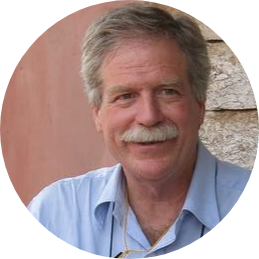
Beyond the dichotomy of developed versus developing
The dominant vision of human development focuses on wealth and tangible things such as roads or building, and the provision of services. This vision, which takes countries like the United States (US), Japan or European states as models, leads to a dichotomy between developed and developing countries. But this dichotomy seems superfluous today because of several reasons. One reason is the growing inequality within countries, not just between them: some of the richest people in the world could be living in the same country as some of the poorest.
Another reason is that the dominant vision ignores viable alternatives. Bhutan, for example, prioritizes what it calls gross national happiness or well-being. This reframing focuses on what it is that really counts: it is people centred and about happiness, cultural richness, diversity, and nature. Wealth and prosperity are not unimportant, nor are healthcare or infrastructure. But the vision of the future needs to put just as much weight on non-material aspects.
I find the word ‘development’ misleading. It is a bit strange to think of, say, Nepal as a ‘developing’ country. Yes, the country does not have the wealth or material resources that the so-called developed world has. But other things are valued in Nepal: there is a strong emphasis on society, culture and family ties. From that perspective, Nepal is quite well developed as compared with countries such as the US, in which these crucial human dimensions are no longer the priority that they might once have been.
Challenges to human-centred development
Human development should focus on people and the planet; the vision should emphasize that everyone is in this together and overcome differences while respecting diversity. This would also help address climate change and put technologies at the service of people instead of in the hands of the few who own them. But there are some challenges involved in operationalizing such a vision.
One challenge is how human development is conceptualized outside the constrains of the environment. For example, there is often a debate – certainly in the Global South – about the relative importance of economic development versus the importance of the environment. In my opinion this debate is fruitless because, clearly, the economy and the environment are not only both important but are also interdependent. There is also a debate about the importance of large-scale projects, such as dams, versus community-led development. But one need not preclude the other. Framing the debate in terms of one perspective versus the other hinders creative responses for enhancing human development.
Another challenge is posed by a dominant short-termism. There is a tendency to think that long-term issues can be put to one side on order to focus on immediate needs; for example, cutting down a forest to facilitate immediate economic or social gains. But this tendency gets in the way of addressing questions such as climate change, which will affect not only the lives of our children but also our own lives in the coming decades.
A third challenge has to do with development aid and the bureaucracies that manage it. It is time to move beyond the notion of rich countries helping the poorer ones. Issues such as building resilience to climate change are not restricted to just some parts of the world: they are truly global. When somebody suffers in one part of the world, it should be everybody’s problem. The perspective needs to be that global problems require global cooperation.
Finally, there might be simply too many political agendas that get in the way of joint work and long-term perspectives. Objectives change over time, often very quickly with changed administrations, and make it difficult to adopt a consistent, long-term approach to human development that encompasses also the interrelations among societies. Today’s global institutions are important and do good work, but we need to bear in mind that underlying the concrete challenges of climate change are conceptual and operational challenges that need to be overcome. The COVID-19 epidemic is a blatant example of the importance of both political narratives and the effective operationalization of measures to enhance resilience across all sectors of societies.
Building resilience together
Mountain areas in the Hindu Kush Himalaya (HKH) region offer a good example of the challenges posed by rapid climate and socio-environmental change. Many men migrate from villages to cities, leaving women behind to handle major problems. But more generally, people are moving from subsistence-based lifestyles to other ways of earning a livelihood. These are profound changes and shocks the system on which communities in this region have been built over decades. Building resilience – the ability to adapt and thrive in the face of both social and environmental change – is important, and for that working with communities themselves is critical. Solutions need to be co-developed with the affected communities in order for them to thrive and to advance.
In the work that we do at ICIMOD, it has been quite inspiring to bring together different perspectives, and to engage actively with communities. It is not only communities but also governments that appreciate this approach in the region. There is no one-size-fits-all approach to build resilience, and it does take some training and experience. For example, it is crucial to recognize that people might value different things in life. Sometimes, working with people on the ground is more time-consuming than top down measures, but it is certainly the approach that needs to be used more in the future – because in our experience in this region and other mountain areas, it is the only one that works.
In this context, it is encouraging that people in the HKH region are keen to understand and learn about what is happening. They have been open to scientific knowledge provided, for example about how climate change is affecting water systems, and how this has consequences for energy systems. It has therefore been possible to get science-based resilience strategies higher up on the agendas of local policy-makers. Of course, there is a debate about what can and should be done now as opposed to later, given the very tight and limited resources available. But, unlike in some parts of the world where there is a lot of political polarization, people in the HKH region have been very open to science-based messages. In the HKH region, lack of regional integration is a real concern that inhibits economic growth and development in its many dimensions, and has led to conflict. On the other hand, many people in other countries appreciate their shared cultures and background, and recognize the joint challenge of climate change in mountain areas. ICIMOD has therefore been working across boundaries, bringing countries together to address mountain environments and livelihood development. Communities and governments across HKH countries, while diverse, have similar challenges like addressing climate change. ICIMOD has set up platforms to bring scientists, communities, practitioners and policy-makers together, and in spite of political differences, there is a good understanding between participants. Perhaps crises like COVID-19 and climate change are also a perfect opportunity for countries to come together and put together a vision of sustainable development that includes what is important for mountain people.

David Molden is the Director General of the International Centre for Integrated Mountain Development (ICIMOD), an intergovernmental knowledge organization dedicated to the mountains and people of the Hindu Kush Himalayan region. He comes from a background specializing in water resource management and sustainable mountain development with an interest in integrating social, technical, environmental, community and policy views for better management of natural resources.
Cover image: by elycefeliz on Flickr